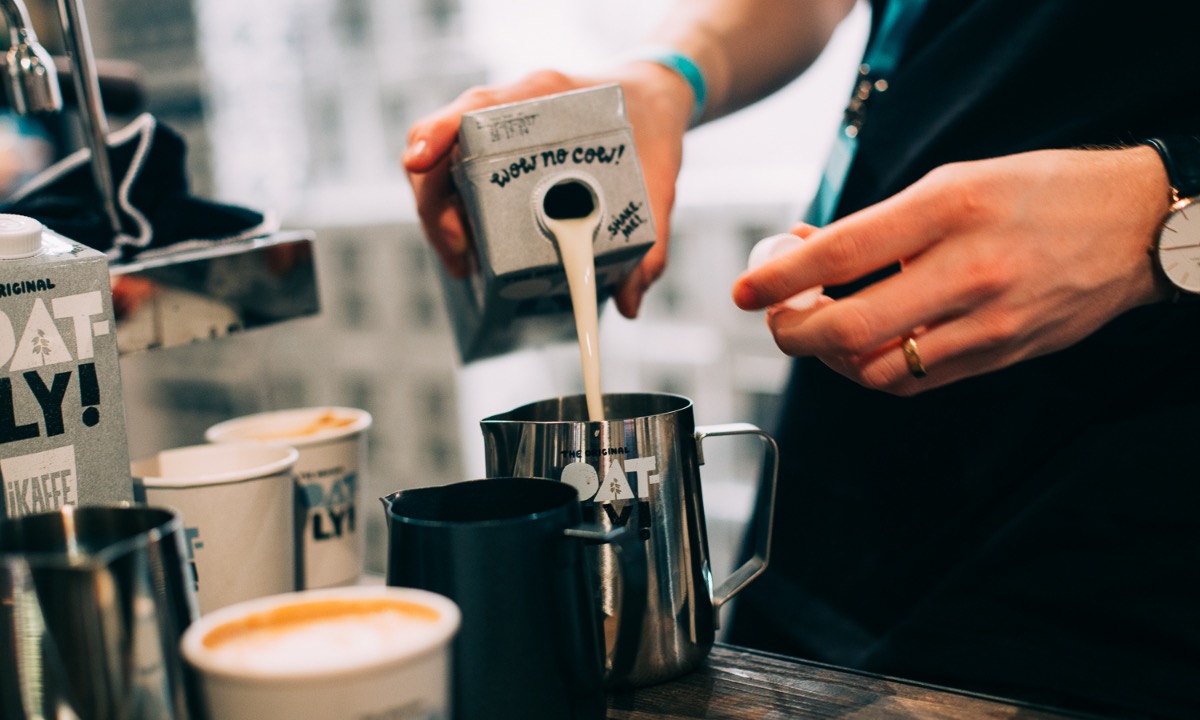Oatly considers additional listing in Hong Kong as banks on Gen Z thirsting on its milk, pre-IPO prospectus reveals
By David Stevenson on Wednesday 28 April 2021

By David Stevenson on Wednesday 28 April 2021

Its pre-IPO prospectus, ahead of its listing on Nasdaq, charts Oatly's financial performance, ambitions moving forward and potential risks.
Oatly, the Swedish plant-based food and drinks firm, is contemplating an additional listing on the Hong Kong stock exchange and is banking on Generation Z and Millennials driving a switch in values towards more sustainable eating and drinking in the coming years, its pre-IPO prospectus reveals.
Oatly is listing on Nasdaq but is also considering a Hong Kong listing within the next two years, citing concerns that the US government might intervene in the running of the company.
China Resources, a Chinese-state-owned conglomerate, owns around 30 per cent of the Swedish company through a joint venture with Verlinvest, the Belgian family investment group, which holds 60 per cent in Oatly.
As explained by the Financial Times, Oatly said the US government might make it difficult for the group to share information with a state-owned firm and might prevent China Resources from putting executives on the Oatly board, or even force it to divest.
Oatly said it might also undergo an additional listing in Hong Kong if its revenues from Asia-Pacific regions are more than 25 per cent of its sales for two consecutive quarters.
The pre-IPO prospectus, which overseas firms are required to file before listing in the US, offers potential investors a summary of Oatly’s business, financial history and ambitions for growth.
Oatly, which in 2020 reported a more than doubling of year-on-year sales to $421m (£302m), noted in the prospectus how it expects consumer tastes to shift in the future towards its products, which are sold in the key markets of the US, Europe and China.
"Generation Z and Millennials will become the dominant global generations in the coming years, bringing to the market a new set of values and expectations," the company said in its prospectus.
"These combined factors are driving a clear rapid, accelerating growth and influx of new consumers to the plant-based dairy market."
Oatly said there is significant room for growth in the market as the dairy alternative category still accounts for between only four per cent and nine per cent of total milk consumption in its key markets like the US and Sweden.
According to the Plant Based Foods Association and Good Foods Institute, plant-based-food sales reached $7bn (£5bn) in 2020.
Oatly, which sells oat milk and a range of oat-milk based foods, reported a $47m (£33.8m) loss in 2020, a swelling of losses compared to $31m (£22.3m) the year previous.
Commenting on its losses, Oatly, whose products are sold in 60,000 retailers and over 30,000 coffee shops globally, said they were due to its “continued investment in production, brand awareness, new markets and product development.”
“Going forward, we intend to continue to invest in our innovation capabilities, build our manufacturing footprint and expand our consumer base, all supporting our growth trajectory,” Oatly, which has partnerships with Starbucks and Alibaba, said.
On risks related to Oatly and the plant-based food industry, the firm cited that “we may be unable to achieve or sustain profitability.”
It said its costs on its expansion efforts might take longer and be more expensive considering Covid-19.
Other risks flagged up, include limited availability of oat and other raw materials that its suppliers can sell it and meet its quality standards.
Oatly, which works with five suppliers for the oats in its products, said: “We have in the past experienced interruptions in the supply of oats from one supplier that resulted in delays in delivery to us. We could experience similar delays in the future from any of these suppliers.”
Oatly has received plaudits for its advertising, which has included a spot during this year’s Super Bowl which features CEO Toni Petersson, sitting with his keyboard in a field of wheat singing about Oatly.
In an indication of the importance of advertising to Oatly’s financial prospects, the prospectus includes several visual examples of its advertising campaigns and packaging
But the company admitted its “provocative” approach to advertising “may expose us to lawsuits and heightened scrutiny from regulators in the markets in which we operate, as well as interest groups, such as dairy lobbyists."
As an example, Oatly cited how the Swedish milk lobby sued it for an advertising campaign that it said was “misleading” and “disparaging” of dairy products in 2014.
2 August 2021
Paul Cuatrecasas
13 September 2021
Paul Cuatrecasas
30 June 2021
Paul Cuatrecasas
9 September 2021
David Stevenson